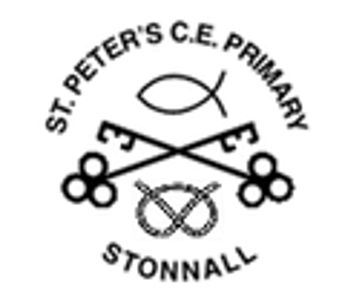Science
Science Vision Statement
At St Peter’s Primary Academy our vision is to provide a hands-on science curriculum which enables pupils to explore the world around them. We aim to develop a deeper understanding of living things and how the physical world behaves. We want children to become independent learners and empower them to experience the joy of discovery. To achieve this, we teach an engaging curriculum which encourages critical thinking skills and curiosity. With their subject knowledge, pupils will confidently experience enquiry-based activities and enjoy exploring and developing their understanding of science.
Intent
At St Peter’s, our intent is to give every child a broad and balanced science curriculum which enables them to confidently explore, discover and understand the world we live in. Through an instilled curiosity, children will develop their knowledge, skills and critical thinking through a variety of scientific enquiries.
Implementation
Science topics are taught within each mixed-age year group in accordance with the National Curriculum, with skills and knowledge linked to age-related standards. Every year group will build upon the learning from prior year groups and will therefore develop a depth of understanding and progression of skills. New vocabulary and challenging concepts are introduced through direct teaching and knowledge organisers.
Impact
Our Science Curriculum is high quality, well thought-out and is planned to demonstrate progression. We measure the impact of our curriculum through the following methods:
- A reflection on standards achieved against the planned outcomes;
- Tracking of knowledge in pre and post learning assessments;
- Pupil Voice about their learning, book scans and lesson observations.
End points:
By the end of EYFS:
Children can identify similarities and differences between themselves and others, places, objects, materials and living things and are able to discuss past and present events in their own lives. They can make simple observations of animals and plants. They recognise that technology is used for particular purposes in different environments and can select technology appropriately. They can explore how to make things move.
By the end of KS1:
The basic fundamentals of the biology strand have been established. Pupils explore animals, humans and changes within environments and begin to develop simple scientific vocabulary linked to this. Children use different types of scientific enquiry to answer a range of questions. Children are encouraged to ask questions, discuss their findings and present the ideas in a variety of ways.
By the end of KS2:
Pupils have a deep understanding of a range of scientific ideas. Children are able to link scientific ideas to the world around them and, through research, understand how scientific ideas are developed over time. Children use secondary sources of information and practical enquiry to draw conclusions and find things out.
1. Pupils have an understanding of the key domains of knowledge and can use key concepts to make links between the domains
2. Pupils can ask questions and make observations about the world around them using scientific knowledge
3. Pupils can analyse data and articulate evidenced conclusions
4. Pupils are able to follow and design scientific enquiries
5. Pupils have an understanding of some of the major issues facing our planet and an appreciation of the importance of science to wider society
Subject Fingerprints
We want our children to begin to think like scientists. The integrity of the subject is important to us. We have designed 5 key 'fingerprints' that we feel encapsulate what we want science to be, which supports teachers to plan and supports children to start to think like an expert. Please see our subject fingerprints on our Curriculum Overview page for more information.
Science curriculum documents can be found below.
